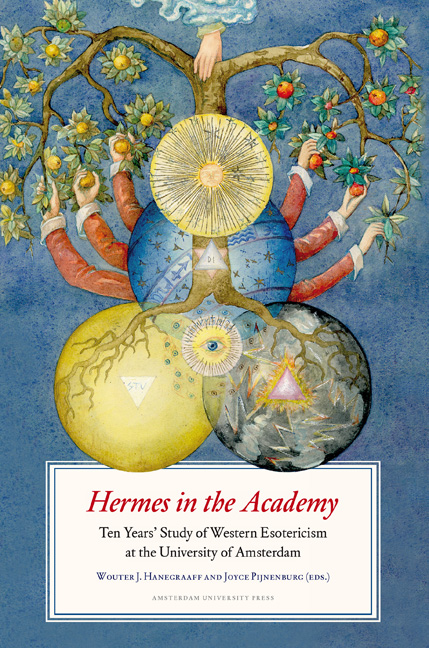The Modernity of Occultism: Reflections on Some Crucial Aspects
Published online by Cambridge University Press: 20 January 2021
Summary
When I moved to Amsterdam in 2004 for my new position at the Center for History of Hermetic Philosophy and Related Currents, one of the tasks I had to face was the organization of the master course focusing on the late modern period, entitled “Occult Trajectories.” I was, of course, free to adapt it to my own research interests, but the course was generally meant to offer some solid, advanced knowledge on the developments of esotericism in the period that goes from the 18th century to our days. Soon enough, the idea occurred to me that I could use this opportunity to make a survey of the ways in which esotericism had interacted during that period with the environing society and culture. Every year I would focus on a different aspect. At the end of this cycle not only would I have a better grasp of the historical development of late-modern esotericism – which would help me contextualize my research on particular subjects – but I would also have enough material to write a general introduction to the history of Western esotericism in the late-modern period. In my first five years in Amsterdam, I have devoted my courses to the following subjects: Orientalism, magic, feminism and gender, politics, literature, and visual arts. In the coming years, I plan to continue this project by focusing further on a certain number of aspects, after which the cycle will be closed and I will draw my conclusions, hopefully producing the book I have had in mind since the beginning. More than halfway through the cycle, some conclusions can be drawn about the ways in which esotericism has interacted with modern Western society and culture. In what follows, I will focus on some of them by discussing, in particular, the role played by occultist organizations.
Occultism and Politics
Esotericism and occultism have often been associated with right-wing, reactionary politics and with irrationalism. The association has been made authoritative by Theodor Adorno in his Theses against Occultism, originally written in 1947 and then included in his Minima Moralia, published in 1950. But Adorno was not the only one, or even the first, to make this association in the immediate years after the Second World War.
- Type
- Chapter
- Information
- Hermes in the Academy , pp. 59 - 74Publisher: Amsterdam University PressPrint publication year: 2009
- 3
- Cited by



